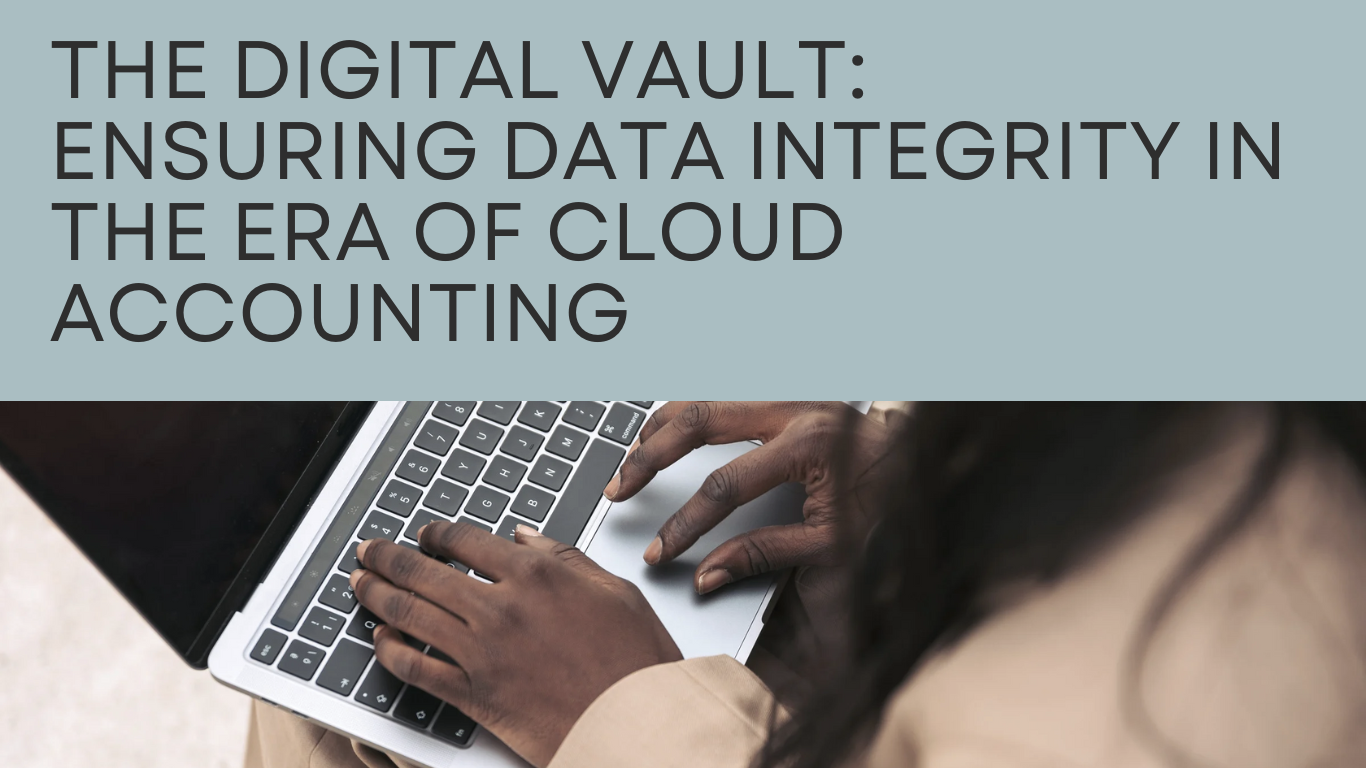The Digital Vault: Ensuring Data Integrity in the Era of Cloud Accounting
 William Johnson
William Johnson
Running a business entails managing a million aspects—clients, deadlines, and of course, the books. But here's something most people do not want to discuss: your financial data is only as secure as the systems protecting the same. With cloud accounting tools like QuickBooks normalizing, data integrity is not just a buzzword, but the backbone of your business. Easily, one wrong click of a misplaced file, a cyberattack, or just pure human error can delete months of work. The post will juggle how to keep your accounting data safe in the cloud from knowing the structure of files to strict backup strategies. By the end, you will have a solid game plan for keeping the access to your financial records safe, secure, and correctly maintained.
Why Data Integrity Matters in Cloud Accounting
Data integrity is simply the assurance that data has not been compromised. It is what stands between your QuickBooks account and giving very little assurance of safeguarding accounting data. Cloud accounting gives freedom and collaboration in real time; however, not all players are willing to accept the risk. Imagine sitting down at a computer, logging onto QuickBooks, and discovering it has been corrupted or completely missing files. According to the 2023 Deloitte report, 60% of small businesses do not have a formal data recovery plan; hence they risk high downtime and financial loss. Data Integrity:
Accuracy: No more bizarre ledgers paired with phantom transactions.
Compliance: With proper documents, you meet your tax deadline and avoid penalties.
Trust: Your clients and partners are probably depending on your financial well-being; that's fast eroding with data breaches.
The Risks Lurking in the Cloud
Convenient as they can be, cloud platforms are not immune to threats:
Cyberattacks: Ransomware and phishing scams target accounting data because of its high value.
Sync Errors: Local file and cloud file conflicts can end up corrupting data.
Human Error: A misplaced decimal or accidental deletion can spiral into chaos.
A single mistake can set you back weeks of work. The preventative approach? You come up with a security and backup strategy.
Understanding QuickBooks File Extensions (and Why They Matter)
QuickBooks uses certain file formats to save data, each with its own distinct purpose in mind. Understanding QuickBooks File Extensions is vital for managing the backups and seeking troubleshooting solutions:
.QBW: The main company file. Corruption here can kill your workflow.
.QBB: Backup files. No guts, no glory.
.TLG: Transaction logs. These track the changes and help recover from lost data.
In this example, suppose the .QBW file crashes; in that case, the latest .QBB backup would restore your books in less than a few minutes.
Building a Bulletproof Backup Strategy
Backup is your first line of defense—this one is cool! Here's how to do it right:
Automate: Set QuickBooks to automatically create a daily backup (File > Backup).
Store the Backup Offsite: Use cloud storage (Dropbox, Google Drive) along with local drives.
Test Your Restores: Restore backup instances at intermittent times to test if it works for you.
Pro Tip: Mark your backups using the dates (e.g., "QBB_2023-10-15") so you do not get confused.
Securing Your Cloud Accounting Environment
Prevent breaches before they happen:
MFA: Enable MFA for QuickBooks and cloud storage.
Role-Based Access: Control who has editing rights on financial data.
Encrypt: Use encrypting tools for very confidential files, such as VeraCrypt.
An article from Forbes states that adopting MFA allows firms to cut out unauthorized access by 99.9%. This should be a no-brainer.
Training Your Team for Data Integrity
Your team is your weakest link—and your strongest asset. Train your team to:
Recognize phishing emails (e.g., urgent requests for login details).
Defend against downloading questionable attachments.
Save files right (never overwrite the .QWB file directly).
A quick thirty minutes of training could be the difference between avoiding a $10,000 ransomware nightmare.
Troubleshooting Common QuickBooks Issues
No matter how diligent you are, when problems arise, troubleshoot the following:
Corrupted File: Use QuickBooks File Doctor (found in the Help menu).
Sync Errors: Test the Internet connection and launch the app again.
Lost Data: Restore your most recent .QBB backup. If nothing works, make sure to reach out to QuickBooks support; they offer free assistance to fix critical issues.
Common Questions About Data Integrity in Cloud Accounting
Q1: How often should I back up my QuickBooks files?
A: Daily is best! Have these set to run overnight. Backup after any important transaction during critical periods, like tax season.
Q2: Is there any hope for recovery if my QuickBooks file becomes corrupted?
A: Sure. Either you recover using the QuickBooks Recovery Manager or restore a recent .QBB backup. If all fails, then try Intuit's data recovery service (after paying the fee).
Q3: Is QuickBooks Online less safe than the desktop version?
A: Both versions are safe, but QuickBooks Online has automatic cloud backups, while for the desktop version, they have to be done manually. Only go for the desktop version if you require advanced features like third-party integrations.
Subscribe to my newsletter
Read articles from William Johnson directly inside your inbox. Subscribe to the newsletter, and don't miss out.
Written by
